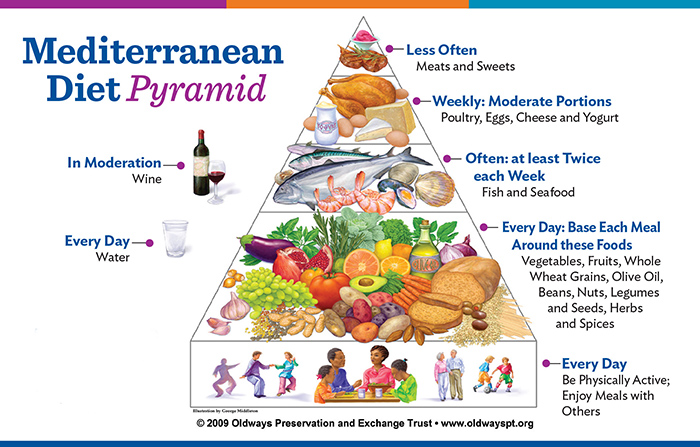The relationship between nutrition and mental health is bidirectional: the foods we eat affect our mental health, and our mental health status affects what and how well we eat. This month, the American Psychiatric Association (APA) and the American Society for Nutrition (ASN) are partnering to highlight the interconnectedness of nutrition and mental health. To learn more about how the public views diet and mental health, APA conducted a poll between March 16 and 17, 2023, among a sample of 2,200 adults.
- Two-thirds (66%) of adults surveyed said they feel knowledgeable about the relationship between diet and mental health.
- Four in five (81%) adults would be willing to change their diet in a way that positively impacts mental health.
- Four in ten (43%) would be very willing to change their diet to improve mental health.
A growing body of research points to the mental health benefits of a healthy diet. Studies have identified particular benefits in addressing depression and several studies point to the benefits of the Mediterranean Diet. A 2019 review published in The American Journal of Clinical Nutrition found that increased fruit and vegetable consumption positively impacts psychological health, and daily vegetable consumption has a therapeutic impact by reducing symptoms of depression in people with clinical depression. A National Academies of Sciences, Engineering and Medicine webinar presentation highlighting Nutrition and Mental Health reported on how improvements in diet can improve depression. A healthy diet provides more vitamins and minerals, healthy fats, and fiber from fruits, vegetables, whole grains, nuts and seeds, which can reduce inflammation and alter neurotransmitters to reduce symptoms of depression.

A 2022 study published in Current Developments in Nutrition and led by ASN member Jessica Bayes, Ph.D., assessed the effect of a Mediterranean diet in treating moderate to severe depression among males aged 18 to 25. The Mediterranean diet, based on eating patterns from people in the Mediterranean region, includes more fruits, vegetables, fish, whole grains, and healthy fats (poly and monounsaturated fats found in olive oil, nuts, and seeds). Study participants had all been diagnosed with major depressive disorder and were divided into a diet intervention group and a control group for a 12-week parallel-group randomized controlled trial. The diet intervention group received nutritional counseling and assistance in meal planning to adhere to the Mediterranean diet. The diet intervention group showed significant improvements in depressive symptoms, with a mean reduction of 20.6 points on the Beck Depression Inventory Scale—Version II, compared to a reduction of 6.2 points for the control group.

According to the World Health Organization (WHO), depression is a leading cause of ill health and disability around the world. Understanding and managing mental health disorders is a public health challenge. Research continues to grow our understanding of the relationship between nutrition and the mind, and current evidence supports that diet has a role in psychological health.
About the American Psychiatric Association
The American Psychiatric Association, founded in 1844, is the oldest medical association in the country. The APA is also the largest psychiatric association in the world with more than 38,000 physician members specializing in the diagnosis, treatment, prevention, and research of mental illnesses. APA’s vision is to ensure access to quality psychiatric diagnosis and treatment. For more information, please visit www.psychiatry.org.
About the American Society of Nutrition
In 2028, ASN will celebrate 100 years as a leading advocate for nutrition, publishing timely and important findings in basic, clinical, and emerging nutrition science. The society’s publications, The Journal of Nutrition, The American Journal of Clinical Nutrition, Advances in Nutrition, and Current Developments in Nutrition are the premier journals in the field of nutrition. In addition to research reports, journals enhance content by providing commentaries and critical reviews written by leaders in the scientific community and special supplement issues on topics in nutrition. ASN’s flagship annual meeting, Nutrition, gathers the top researchers, practitioners, global and public health professionals, policy makers and advocacy leaders, industry, media and other related professionals gather to advance nutrition science and its practical application. ASN advocates for nutrition research and resources and by working with Congress and federal agencies on issues that impact the way nutrition scientists and clinicians conduct research or treat their patients. ASN also collaborates with organizations on common issues related to nutrition to build coalitions and advance issues of mutual interest, such as this collaboration with the American Psychiatric Association. For more information, visit nutrition.org/.





